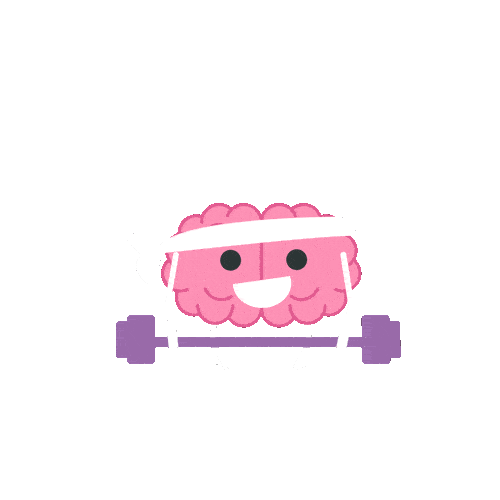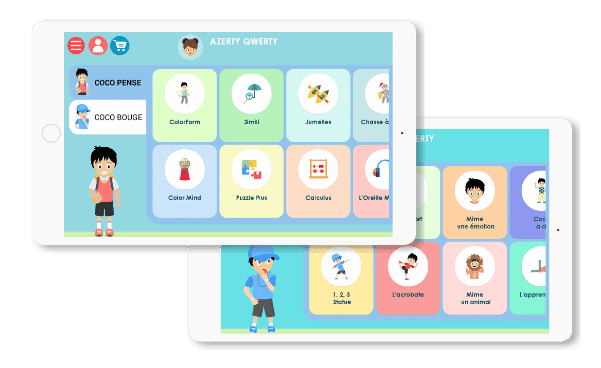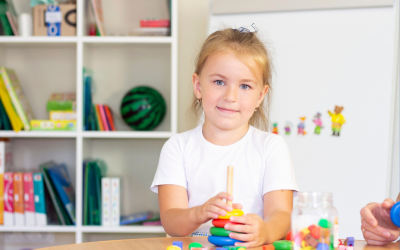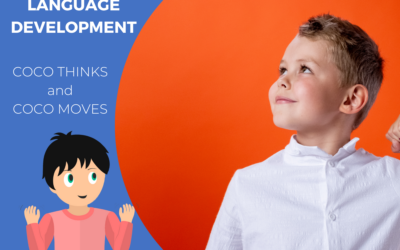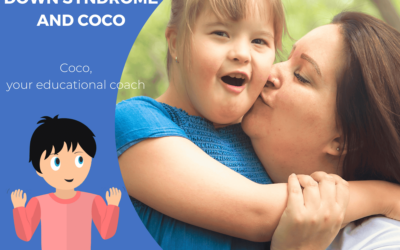Play-based learning is an educational approach that involves the use of games and playful activities to help children learn and develop skills. This method is particularly beneficial for children with autism, as it allows them to learn in a more effective and engaging way.
Children with autism often have difficulty focusing and interacting with their environment. Games can help get their attention and encourage them to actively participate in learning. In addition, games can be adapted to meet the individual needs of children with autism, based on their interests and abilities.
How can play-based learning benefit children with autism by stimulating their creativity, imagination and curiosity?
Play-based learning can be particularly beneficial for children with autism by stimulating their creativity, imagination and curiosity. By using games and fun activities to teach, children are more engaged and motivated to learn, which can help develop their curiosity and desire to explore new concepts.
Stimulate the imagination
Games can also help stimulate the imagination and creativity of children with autism. For example, a construction game can encourage children to create imaginary structures, using their imagination to design and build unique objects. Similarly, role-playing can help children explore different situations and come up with creative solutions to problems.
A concrete example of game-based learning to stimulate creativity, imagination and curiosity in children with autism is the use of role-playing.
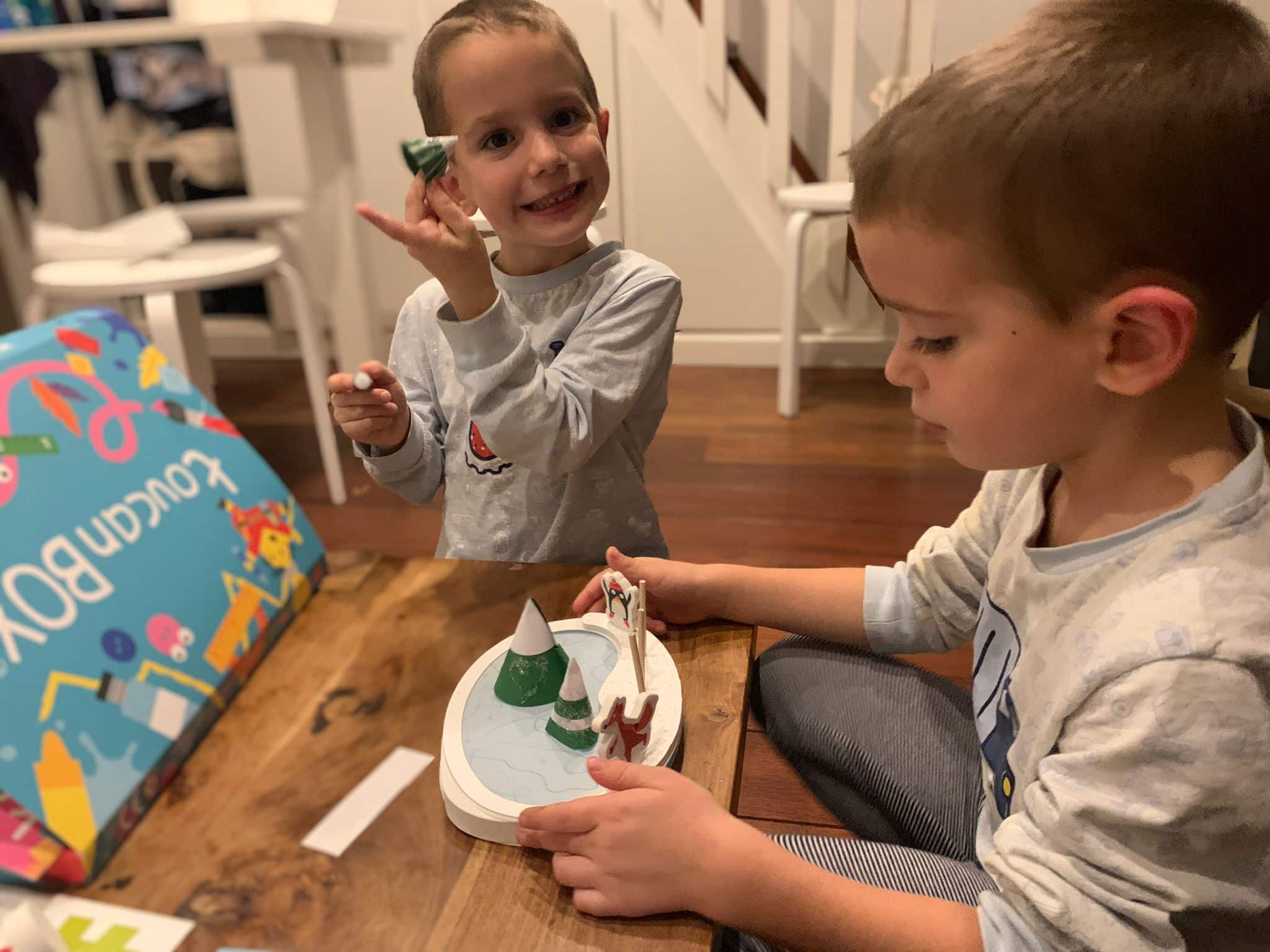
For example, a role-playing game might involve simulating a telephone conversation. Children could be encouraged to play different roles, such as the calling character and the answering character. By playing this game, children could learn to use the right phrases and communicate effectively, while having fun and using their imagination.
Develop their self-confidence
Play-based learning can also help children with autism develop confidence. By being encouraged to explore and experiment, children can learn to try new things without fear of failure. This can be especially important for children with autism who may have difficulty interacting with their environment.
How can the COCO app provide a stimulating, autism-friendly learning environment for children with autism?
COCO is an educational application that uses game-based learning to enhance children’s cognitive functions. This application provides a stimulating learning environment adapted to the needs of children with autism.
Ability to adapt to individual needs
One of the main features of the COCO application is its ability to adapt to the individual needs of children with autism. The application offers a variety of games and activities, which can be adapted to meet the interests and abilities of each child. For example, a child who prefers bright colors and moving images may benefit from visual games, while a child who prefers memory games may benefit from games that are more focused on retaining information.
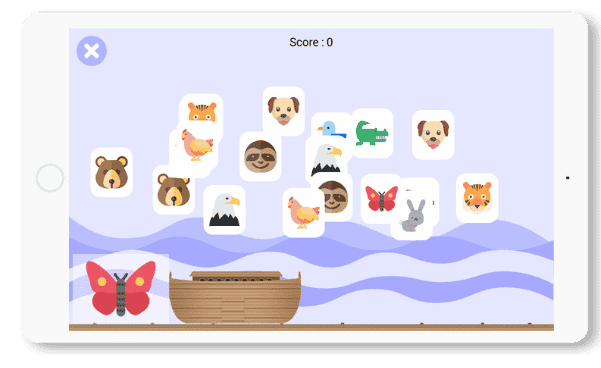
Improve interaction
Children with autism may have difficulty interacting. The tablet can therefore become a mediation tool to create a shared activity. In addition, in COCO THINK and COCO MOVE there are activities that can be played in pairs, on the same screen. This allows the activity to be shared in a safe and familiar environment. The screen is split in two, so everyone plays on his side, but at the same time we play together.
Recognizing emotions
The COCO THINKS and COCO MOVES application also offers games to work on physical skills or to recognize emotions. Using this game, children can learn to identify and understand their own emotions, as well as the emotions of others. They can also learn to communicate their emotions effectively, which can help them better interact with their environment.
This application is an excellent example of how game-based learning can be used to provide children with autism with a stimulating learning environment tailored to their individual needs.
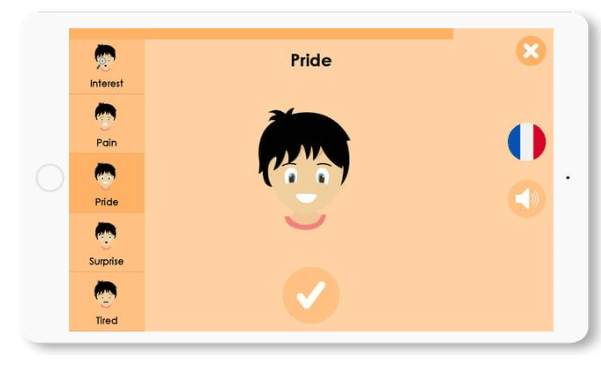
How can we improve the motivation and engagement of children with autism in learning?
Children with autism may sometimes have difficulty staying focused on a task or maintaining motivation when faced with difficult tasks. Game-based learning can help boost their motivation and engagement in learning by providing a fun and interactive learning environment.
Improve children’s motivation and engagement
A concrete example of the use of game-based learning to improve motivation and engagement in learning for children with autism is the “AutiPlan” application. This app uses games to help children with autism learn to plan and organize their daily activities. Children can personalize their schedule by using images and icons to represent different activities. They can then organize their activities using drag and drop to create a visual calendar for their day.
By using this app, children can be more motivated to plan and organize their daily activities because they are able to do so in an interactive and visual way. The game can also offer rewards for completing tasks, which can encourage children to stay engaged in their learning.
Problem solving skills
Use construction games to develop problem-solving skills: Children with autism may have difficulty solving problems independently. Building sets, such as Lego blocks, can be used to provide them with problem-solving challenges using blocks to build structures or models. These games help children learn to plan, organize and solve problems independently.
What games can be used to help children with autism learn healthy routines and habits?
Healthy living habits are an important part of daily life, and children with autism may need additional support to learn and maintain these habits. Games can be used as a fun way to teach these skills to these children. Here are some examples of games that can help children with autism learn healthy routines and habits:
Improve concentration and attention
There are memory games to improve concentration and focus: Children with autism may have difficulty staying focused on a task for an extended period of time. Memory games, such as matching card games, can be used to improve their focus and attention. By using these memory games, children can learn to focus on details and retain information effectively.
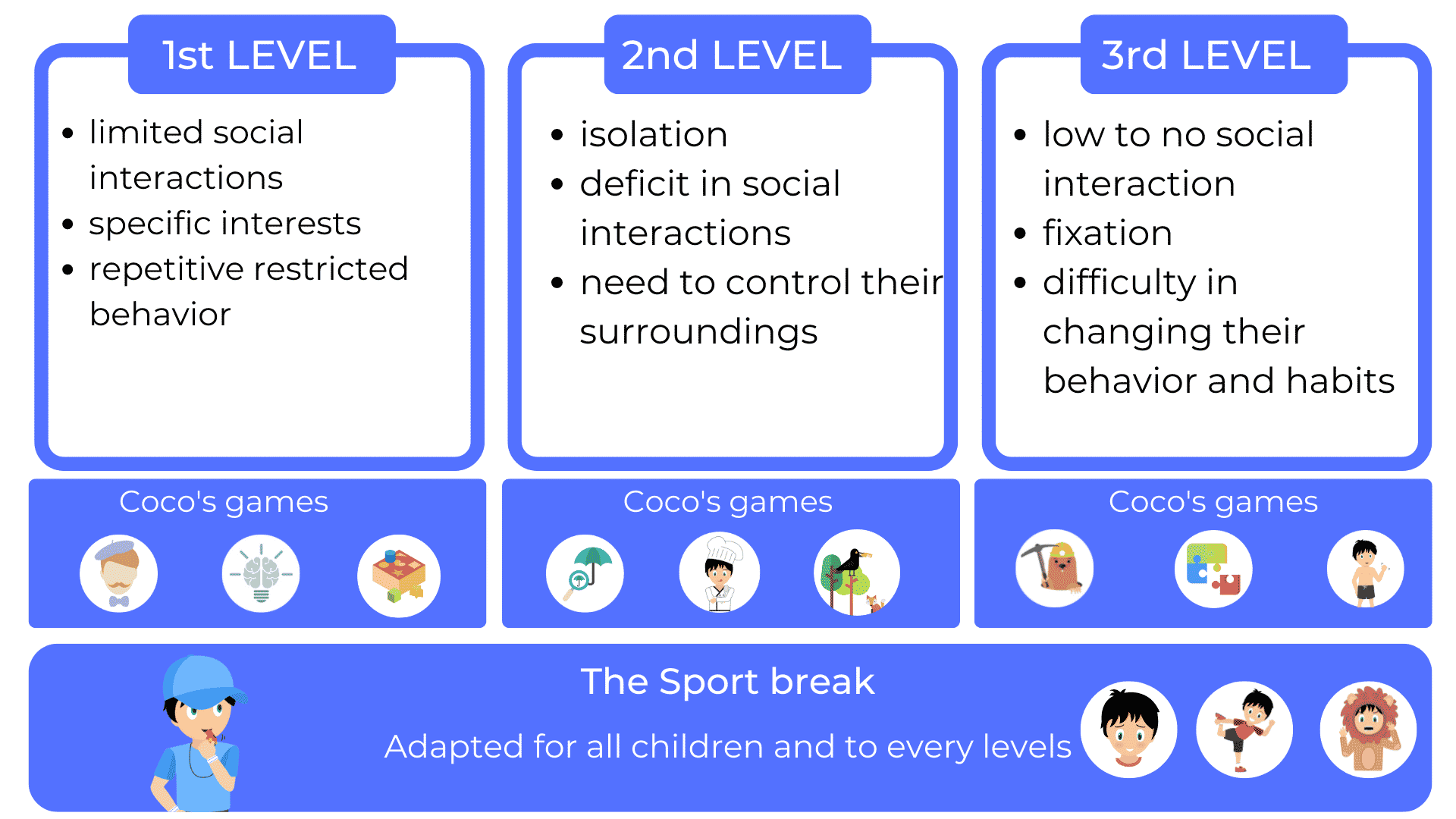
The housework game
This game can help children with autism learn to do household chores such as washing dishes, cleaning and folding laundry. By using cards with pictures or written instructions, the child can learn to do each task independently and maintain a daily household chore routine.
The meal planning game
This game can help children with autism plan and prepare healthy meals. Using cards with pictures or written instructions, children can learn to plan balanced meals by choosing foods from different food groups. This game can also help children understand the importance of eating healthy foods to maintain good health.
The sleep game
It can help children with autism learn to establish a healthy sleep routine. Using cards with pictures or written instructions, children can learn to establish a regular bedtime routine, prepare for sleep and create a sleep-friendly environment. This game can also help children understand the importance of proper sleep for good health and daily functioning.
The exercise game
It helps children with autism learn to exercise regularly to maintain good physical health. Using cards with pictures or written instructions, the child can learn different types of exercises, such as stretching, cardio and strength training. This game can also help the child understand the importance of exercise for physical and mental well-being.
By using games to teach healthy habits, children with autism can learn in a fun and interactive way. Games provide a stimulating and engaging environment for learning, and children can learn independently while remaining motivated and engaged. Parents and teachers can also tailor games to meet the individual needs of each child, providing a learning environment tailored to each child with autism.

Other articles that might interest you:
Supporting children with autism
Dynseo proposesSUPPORTING CHILDREN WITH AUTISM with COCO THINKS AND COCO MOVESDynseo and its team are very much...
Supporting DYS children with COCO THINKS and COCO MOVES
Dynseo proposesDYS disorders with COCO THINKS and COCO MOVESOur educational and pedagogical games program COCO THINKS...
Language development
Children communicate from birth with movements, crying, looking at each other or with smiles. After only a few months,...
Supporting children with Down Syndrome with Coco
Dynseo proposesDOWN SYNDROME with COCODown syndrome is a non-hereditary chromosomal abnormality that leads to the...
Supporting people after a stroke
Dynseo proposesStroke with CLINT, your brain training coachThe Dynseo team is very involved in helping people who have...
Supporting someone with Alzheimer’s
In this guide, we will detail how SCARLETT can be used for supporting someone with Alzheimer's. SCARLETT is a...
10 myths about the human brain you didn’t know
The brain is an incredible muscle, however there are many things we do not know, and what we do know is not always...
Creating Effective Daily Routines for People With Special Needs
Daily routines play a crucial role in the lives of individuals with special needs. These routines provide structure...
Enhancing Communication for Non-Verbal Through Routines
Individuals with special needs often face unique challenges when it comes to communication. These challenges can vary...
Autonomy in Non-Verbal Children: Strategies for Facilitating It
Non-verbal children face unique challenges in their daily lives. Communication is a fundamental aspect of human...
